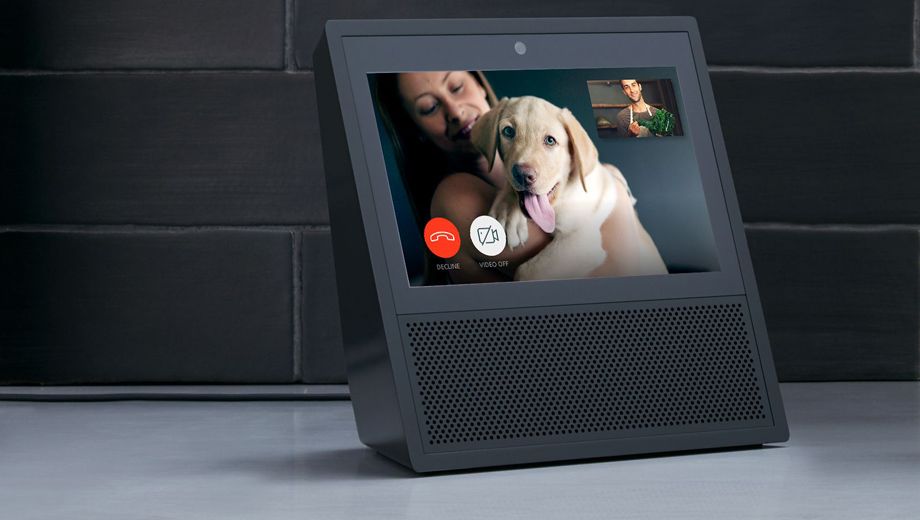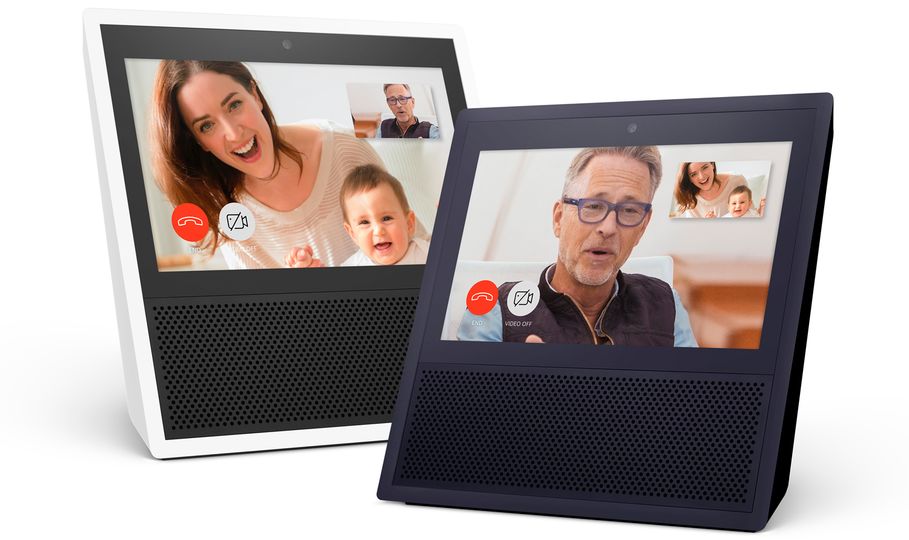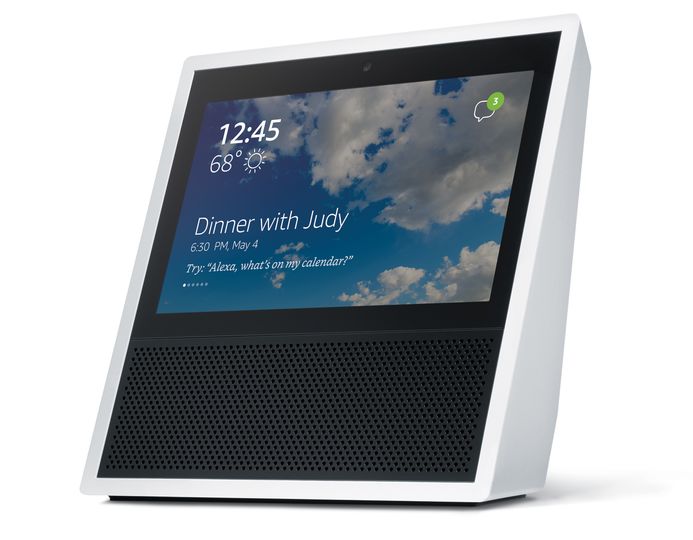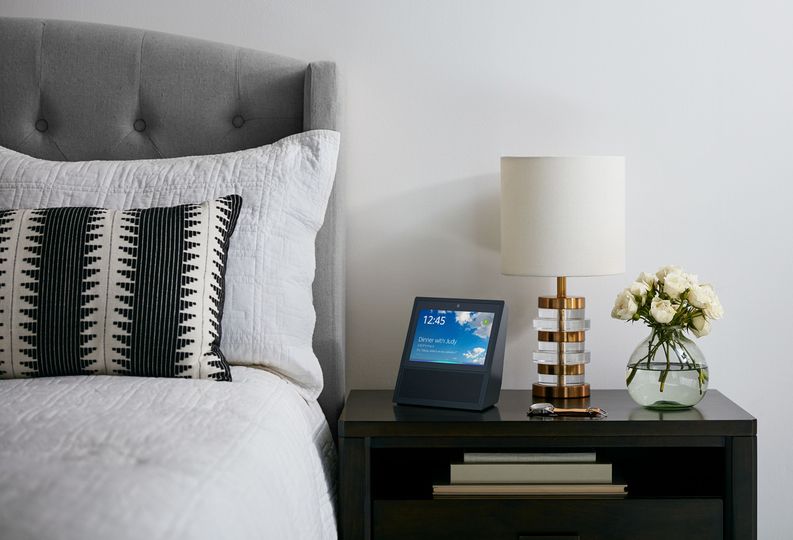Amazon's new Echo is a bet on what comes after the smartphone

Most of us remember the time before smartphones were in the pockets and purses of billions of people.
Before those gadgets became the primary computer for millions of people. Before the smartphone boom made fortunes for some companies – Apple and Facebook, for example – and doomed others.
That all happened in less than a decade. That is stunningly quick. And now companies are already looking ahead to the post-smartphone future.
Amazon on Tuesday released its latest entrant in its Echo line of home speakers with a built-in voice-activated computer and a seven-inch touchscreen that can pull up calendar appointments, display music lyrics, play videos and – for some reason – hold video conference calls without a phone.
The Echo Show will cost US$229 when it goes on sale in late June
In a demonstration at Amazon's San Francisco offices, the Echo Show displayed full weather forecasts, news headlines and LeBron James highlights.
The company says the device will also play camera feeds from such connected devices as baby monitors and camera-equipped door bells.
Alexa and friends
Services that already connect to the Echo will be able to display information - say, how far an Uber is from your front door or the basic box score for a baseball game.
Alexa currently supports 12,000 "skills," Amazon's term for third-party services, and over time will offer increasingly comprehensive information, such as the points scored by a specific player.
Photos of the Show – a black or white wedge of plastic - elicited decidedly mixed reviews on Twitter, with one person saying it belonged on Star Trek (presumably the original) and another comparing it with the Chumby, a chunky digital assistant whose maker filed for bankruptcy.
Let’s be frank: The new Echo looks ugly. And many of us shudder at the idea of putting an always listening and talking computer in our kitchens or bedrooms.
But today’s reality of the Echo – and other voice-activated technologies from Google, Microsoft, Apple’s Siri and others – hardly matters. Declaring a winner based on which company sells a few million voice-assisted gadgets is pointless.
About 10.7 million Amazon customers in the U.S. have an Echo device, according to estimates from Consumer Intelligence Research Partners (the cheapest Echo product, the $50, hockey puck-shaped Dot, has accounted for more than half of that tally).
For comparison, in just 2016 there were about 1.5 billion new smartphones sold in the world.
All these still-crude technologies are the jockeying by technology companies to figure out what comes after the smartphone and which company gets to dictate the future, whatever it looks like.
The Echo Show isn’t merely a $229 gadget with a microphone, camera and computer screen. It’s the equivalent of sticking a finger in the wind to see which way it's blowing.
What's next..?
Remember that before the iPhone took off, it was hardly obvious that smartphones would become a dominant on-ramp to the digital world or that touching and swiping with our fingers would be a dominant way to interact with computers.
And likewise it is not obvious what might supplant the smartphone and touch control.
In the future, will we primarily interact with computers by voice, as we do with Siri or the Amazon Echo? Will it be through eyeglasses or contact lenses that mix the digital and real world - say, a digital map that appears in our field of vision as we drive to a restaurant? Will we all live in Mark Zuckerberg’s virtual reality? Or will we interact with computers in ways we can’t envision yet?
It’s all up in the air. But a few years ago, it was fairly unimaginable that Amazon would have a role in this war to dictate the digital future. You may remember – but probably don’t – that Amazon released a smartphone of its own design in 2014.
It had some clever new ideas to allow people to interact with digital images, but the Fire phone never caught on. It was perhaps Amazon's biggest flop ever.
To Amazon’s credit, it didn't give up trying to suss out the future. In a way, Amazon's failure in smartphones gave it the freedom to imagine what might come after the smartphone operating-system war, which Amazon had lost.
Now, Amazon's Alexa voice-activated software, which controls the Echo, is in many millions of home speakers, tablets, cars, home appliances and much more. Amazon has a pole position to shape how people interact with computers.
When Amazon thinks a product category or business strategy is truly promising, it tends to hit the gas no matter the immediate return on investment.
Amazon's chief financial officer said last month that the Echo gadgets and Alexa were among investments the company is "doubling down on."
The Echo may never be a mass-market gadget, but Amazon has given itself a voice in determining the computing future.



24 Apr 2017
Total posts 80
oh please, no one is going to carry that around in their pocket, its nothing more than a 7 year old Sony Dash on steroids, and it can't make calls to phones. Hardly even close to a replacement for the smartphone.
Hi Guest, join in the discussion on Amazon's new Echo is a bet on what comes after the smartphone